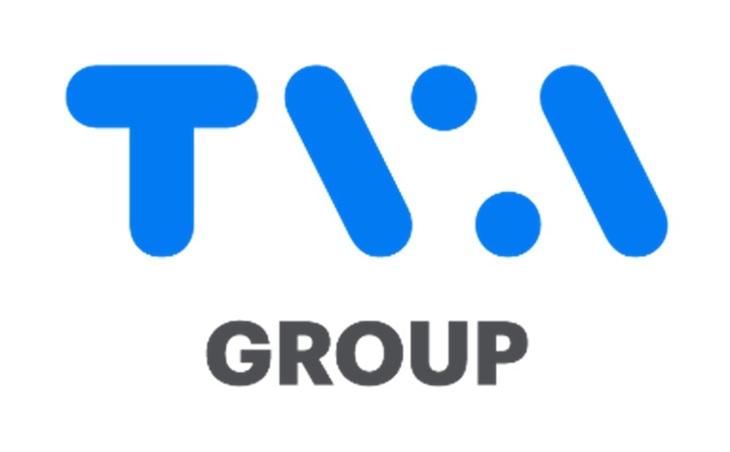
Quebecor Media subsidiary TVA Group announced Wednesday several layoffs, primarily in its television division, as the broadcaster faces an uncertain future due to ongoing financial challenges, the Montreal-based company said.
“TVA Group, like other private broadcasters, is operating in a steadily deteriorating business environment and continues to absorb substantial financial losses while competing on an uneven playing field,” Quebecor President and CEO Pierre Karl Péladeau, who is the acting president and CEO of TVA Group, said in a press release.
“In this alarming situation, TVA Group is forced to cut some 30 jobs, mainly in its television division. These are teams that have already undergone major restructuring in recent years, including two overhauls since 2023 that resulted in the elimination of more than 650 jobs, half of TVA Group’s workforce. The financial picture has also forced us to slash budgets for original Quebéc productions by independent producers belonging to the Association québécoise de la production médiatique (AQPM) and drop popular programs from our schedule.”
Cartt.ca and its sister publication Broadcast Dialogue reported on previous Quebecor Media job cuts here, here, and here.
“Despite these rationalization efforts, the situation continues to worsen,” Péladeau added. “TVA Group’s financial results for the first quarter of 2025, released on May 5, 2025, confirmed the trend once again. TVA Group’s total net loss over the past three years now stands at $76.1 million. The financial burden has been borne entirely by its shareholders, who have seen the value of their shares collapse.”
Péladeau said, although TVA Group’s market share is growing, its advertising and subscription revenues continue to fall.
“Over the past three years, TVA Group’s television advertising revenues have declined by $27.7 million. At the same time, its subscriber base and subscription revenues have dwindled as audiences and their subscription fees migrate to U.S. platforms and social networks, which are also capturing more advertising revenues than ever.”
Péladeau pointed at the CRTC and government authorities giving “free rein” for too long to U.S.-based video streaming services, while Canadian broadcasters have to meet licensing requirements and restrictive regulatory burdens in order to operate.
“The situation is egregious. The unlicensed American online services have been causing the initially slow and now quickening downfall of Canadian broadcasting. Operating outside regulatory constraints, they are destabilising Canada’s broadcasting ecosystem, accentuating changes in viewing habits and contributing to the erosion of viewing and advertising revenues on traditional platforms. How can TVA survive in such an unfavourable, over-regulated and over-taxed environment, when the Web giants can operate with virtually no restrictions?” Péladeau said.
He also criticized governments for limiting the journalism labour tax credit to print media and not extending it to television journalism.
“We have to ask the question: why are governments dividing journalists doing essentially the same work for our democracy into two classes? The artificial line between print and broadcast media drawn by this exclusion is destined to disappear with digitization. There is no reason not to act now.”
He also directed blame at public broadcaster CBC/Radio-Canada and private broadcaster Bell for creating additional challenges for TVA.
“For too long, CBC/Radio-Canada has been in direct and unfair competition with private broadcasters, vying for advertising revenue, ratings and content acquisition,” Péladeau said. “A strong, home-grown broadcasting system requires complementarity between the public and private sectors. It is imperative that the public broadcaster’s mandate and business practices be refocused and all advertising removed from its platforms. As he begins his second term as Minister of Canadian Heritage, Steven Guilbeault should move swiftly to implement all the recommendations made by his predecessor in February 2025, which echo those of the 2020 Yale Report.”
As for Bell, Péladeau said the large telecom is “persisting in its anti-competitive behaviour by refusing to pay the fair market price for TVA Group’s specialty channels, particularly TVA Sports, as all other BDUs in Québec and Canada have been doing for years. The CRTC must intervene quickly to make Bell pay fair compensation for TVA Sports at last.”
In addition, Péladeau said a recent reduction in funding from the Canada Media Fund has meant a net loss of $5 million for TVA alone for 2025-2026, which represents almost a third of its funding.
“For more than a decade, TVA Group and others have been making the case that these problems are crippling the industry, but no significant reforms have been implemented to enable our television industry to cope with the current upheavals. Effectively addressing these issues could be a game-changer for private broadcasters, which are essential to our cultural sovereignty and to maintaining a strong, home-grown broadcasting system.”



